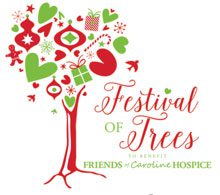 My wife’s not too smart; I told her our kids were spoiled . . . she said, “Lots of kids smell that way.” – Rodney Dangerfield
My wife’s not too smart; I told her our kids were spoiled . . . she said, “Lots of kids smell that way.” – Rodney Dangerfield
An idealist is one who, on noticing that a rose smells better than a cabbage, conclues that it will also make better soup.” – H.L. Mencken
At the risk of flailing at windmills or attempting an impossible career change, I’d like to command the army assigned to wipe out bad smells. All of them. But hey, who am I to judge? Some people actually like the putrid defensive scent a skunk gives off. Seriously. But let’s be sure I’m on the right page before marching off. The dictionary says there are many words to describe bad odors. To wit:
Ill-smelling, malodorous, stinky, bilgy, fetid, foul, funky, ill-scented, noisome, smelly, stinking, stinky.
In contrast, I always thought our lowcountry smelled great. The endlessly snaking creeks at low tide, Hunting Island any time, that little bakery in downtown Beaufort, the shops on Bay Street. Even my old shrimp net. Now that I’m in Boston it’s a whole different ballgame. While my building has a pleasantly gentle smell, a bit like Glade with the cap loose or a slice of apple, and the elevators often trap the dreamy smell of coffee from a prior passenger, it’s a different story outside.
By the way, SC Johnson, the maker of Glade, clearly captures their approach. How do they choose their ingredients? Glad you asked. “We created a way to evaluate ingredients called the Greenlist [trademark] program. We carefully review every chemical we use for human safety and environmental health. Then, we go a step further by sharing our product ingredient lists so you can make the most informed choices for your home.”
Gee, maybe some of these corporate Boy Scouts would make fine captains in my army. Come to think of it, we’ll probably need a seasoned air force for air cover. Like to help neutralize bad smells over a large area using a process something like crop dusting or aerial mosquito spraying.
SC Johnson has a vast catalogue of chemical ingredients that it uses. As a Raison Bran guy, I liked this one: “Pasteurized bran is a carrier. A carrier does just what it sounds like – it helps carry a product to a surface by thinning or thickening the formula or simply ensuring even distribution of the other ingredients in the formula. We use pasteurized bran because without a carrier, the product would not work with the same consistency across a surface.” OK SC and company, saddle up… I mean get your flight suits on. I smell a revolution coming on.
If lowcountry smells were my baseline, Boston has brought a whiff of reality. It was 2 degrees here this morning and maybe the frigid cold helps to subdue bad smells, beyond the fact that you may be wearing a scarf or ski mask. My building smells fine, as I said. Going outside is the issue. Even though you can get practically anything delivered, from sandwiches to sushi, it’s nice to get outdoors and smell the…
No, not roses. I haven’t seen any here yet. There’s trash on the sidewalks and small open lots make for interesting odor frames. A couple of blocks from my place is such a lot, festooned with candy wrappers, socks, sparrows pecking at the dirt (I think they probably smell fine and at least they’re cute), fast food debris, a can of Cabot whipped cream. In the middle of the lot, against the wire fence facing Harrison Avenue, sit two empty white buses. Both are emblazoned with signage indicating they support the Greater Boston Chinese Golden Age Center. I can’t help but wonder how the insides of those desolate looking buses smell. Cigarettes? Lingering perfume? Leather seats? Cats? Little Trees air fresheners for cars? And what about the Center itself? I imagine the wafting fragrance of wanton soup, egg roll, fried rice and General Tso’s chicken. Maybe some old fellow’s Havana cigar, smoked in celebration of his granddaughter graduating from Yale before the staff ushered him outside under a cloud of controversy.
Speaking of smoke, Boston has a reputation as a hip, liberal college town. It has 35 colleges, universities and community colleges. There are over 150,000 students in total, led by BU with about 33,000. So why do so many people smoke cigarettes anymore? I can smell their stench a half block away. The sidewalks are peppered with butts. So far I’ve seen one valiant fellow sweeping them up on the job but he’s greatly outnumbered. Surely my air force can lend him a hand, a few cans of Glade, and some sort of medal. The U.S.’s Fifi Awards, sponsored by The Fragrance Foundation, come to mind.
It’s not just cigarettes. Add on bus exhaust, pet waste on the street, burnt cooking aromas, and some citizens’ inexplicably noxious personal scents—perfume, cologne, soap or lack thereof. Some bad smells hang around with no obvious source or composition. Think ballpark food at Fenway and then turn it upside down. Replace hotdogs, lobster rolls, roasted peanuts, chowder and cold beer with old socks, moldy books, wet dogs and just a pinch of that skunk.
I’m being a little bit flip here, but there’s a whole other side to bad smells. War. In Keith Lowe’s “Inferno,” he chronicles the Allies’ relentless aerial bombing of Hamburg, Germany in 1943. Many locals quoted in the book recall wretched, suffocating smells even 60 years later. Ludwig Faupel’s company had been totally destroyed and he was consigned to cleanup duty. In his words,
“… The mountains of corpses were regarded as the worst work. It was not the sight of it, but the smell that made this activity so hard. As you walked through the ruins every now and then the smell of burnt flesh, or the sickly sweet stink of decomposing tissue, would bring on a strong and immediate nausea.”
Even extremely noxious smells often lose their punch over time as we become accustomed to them. Thank heavens for that. Not so much when we become insensitive to terrific smells like baking bread, for bakery workers anyway. Emotional associations and neural circuitry come into play as well, as our reactions to smells can be strongly shaped by our environment as we grow up. How else to explain the appeal, to the French at least, of seriously strong smelling cheeses like Camembert or Trou de Cru? What kind of wine pairs best with holy mackerelthat’s awful? Maybe a nice 1985 turpentine instead. Or a more refined Windex.
In exploring the ‘legs’ this column might have, I nosed around a lot. A veterinarian friend wrote to me: “Interesting idea! How do people deal with or work in jobs that have serious malodors- plumbers and sweat workers, morticians, garbage workers, pathologists, particularly forensic pathologists, swine farms, all these in the modern world. In the third world, the sources of malodor are significantly greater.”
Maybe I’m just stuck in the past and the Millennials have beaten me by a nose in adapting to modern smells. According to Scentbird polling, they prefer sophisticated, sexy, and fresh. We all have our preferences, mine just don’t include strong floral scents, race tracks, icky cheese, rancid grease, moth balls or zoos.
Or is my nose just out of joint?






